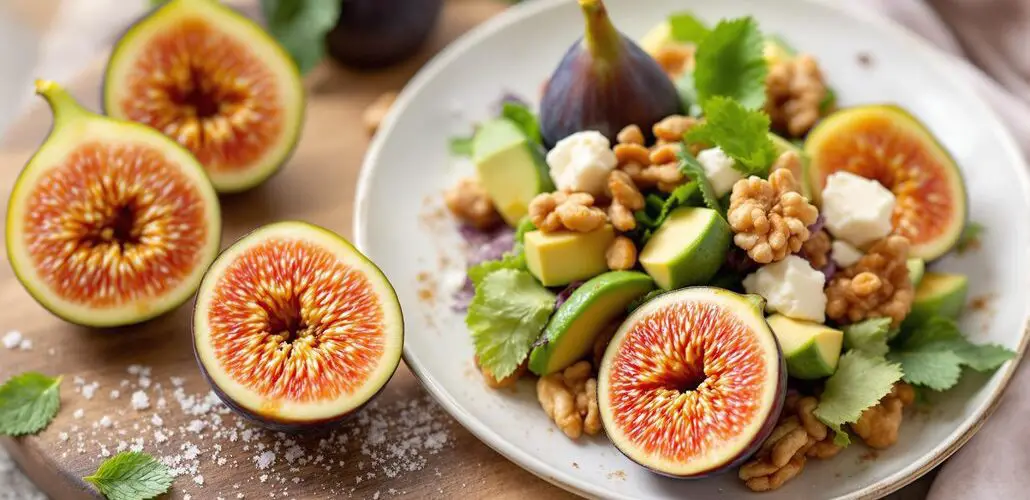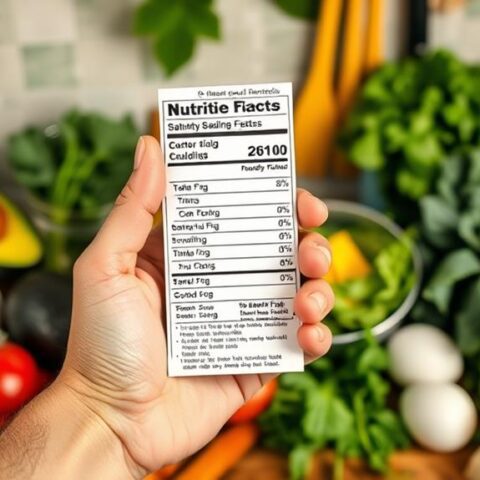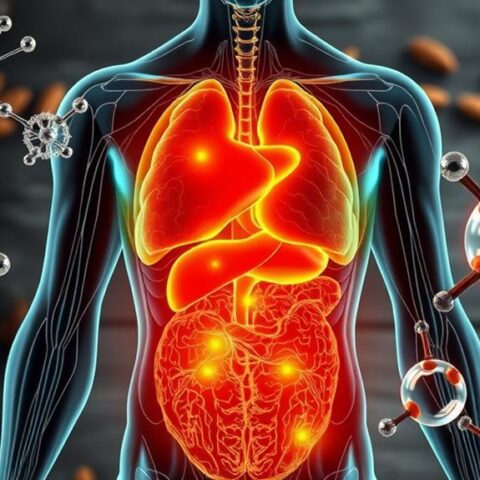
Figs are generally unsuitable for a ketogenic diet due to their high carbohydrate content. Fresh figs contain approximately 16.28 grams of net carbs per 100 grams, which can greatly impact daily carb limits essential for maintaining ketosis. Dried figs have even higher carb concentrations, making them more challenging to integrate into a keto plan. While figs are rich in dietary fiber, vitamins, and minerals, their natural sugar content positions them among high-carb fruits. Moderate consumption and careful monitoring of portion sizes are vital for those attempting to include figs in a keto regimen. Additional insights can provide further guidance on managing dietary choices.
Key Takeaways
- Figs are generally unsuitable for a keto diet due to their high carbohydrate content.
- A single fresh fig contains approximately 8 grams of net carbs.
- Dried figs have even higher carbs, often exceeding 30 grams per serving.
- Consuming figs requires careful moderation to avoid disrupting ketosis.
- Keto-friendly alternatives include raspberries, blackberries, and avocados.
Understanding the Keto Diet
How does one successfully navigate the principles of the ketogenic diet? The keto diet, a low-carb, high-fat dietary approach, is designed to shift the body's metabolism from carbohydrate reliance to fat utilization. This transformation occurs when carb intake is restricted to 20-50 grams of net carbs per day, compelling the body to enter a metabolic state known as ketosis.
In ketosis, the body efficiently burns fat for energy, a cornerstone for individuals pursuing weight-loss diets. Achieving ketosis can be challenging as excess protein intake may disrupt this state through gluconeogenesis. Adhering to the keto diet involves prioritizing nutrient-dense foods such as healthy fats, moderate protein, and low-carb vegetables.
These choices help maintain lower blood sugar levels, optimizing the benefits of the high-fat diet. By contrast, foods high in carbohydrates, including grains, sugars, and certain fruits, are curtailed to sustain ketosis and enhance fat metabolism.
The potential advantages of the keto diet extend beyond weight loss, offering improved mental clarity and energy levels. However, individual physiological responses vary, necessitating careful monitoring of carb intake.
Adjusting dietary components based on one's metabolic threshold is essential to consistently stay in ketosis and reap the diet's full spectrum of benefits.
Fig's Carbohydrate Content
Delving into the carbohydrate content of figs reveals their unsuitability for a ketogenic diet due to their high net carb levels. A typical fresh fig (50g) contains approximately 8 grams of net carbs, while a 100g serving escalates to around 16.28 grams of net carbs. This is compounded by their high natural sugar content, approximately 6.5 grams per 100 grams, categorizing figs as a high-carb fruit. With a total of 19.18 grams of carbohydrates per 100g serving, including 2.9 grams of fiber, the net carbohydrate impact remains significant.
| Fig Type | Net Carbs (per 100g) |
|---|---|
| Fresh Figs | 16.28g |
| Dried Figs | Higher |
| Fiber | 2.9g |
| Sugar | 6.5g |
Dried figs, in particular, possess an even higher carbohydrate density, further lessening their suitability for those adhering to a ketogenic lifestyle. The concentrated sugars in dried figs cause a higher gram of total carbohydrate content, which can quickly deplete the net carbs a day allowance. For individuals maintaining a strict keto regimen, typically limiting themselves to 20-50 net carbs a day, even a small amount of figs can exhaust their daily carb limit, necessitating careful monitoring and potential exclusion from their diet.
Nutritional Breakdown of Figs
In evaluating the nutritional profile of figs, it is clear that their high carbohydrate content, particularly the 16.28g of net carbs per 100g serving, poses challenges for those adhering to a ketogenic diet.
While figs are low in fat and provide minimal protein, they are also a source of dietary fiber, which aids in digestion.
Despite their carbohydrate density, figs offer vitamins and minerals such as potassium and vitamin K, although their impact on keto compliance is limited due to the overarching nutritional composition.
Carbohydrate Content Analysis
Figs' nutritional profile reveals a significant carbohydrate content, particularly remarkable for those adhering to a ketogenic diet. A 100g serving of figs contains approximately 19.18g of total carbohydrates, with around 16.28g net carbs after accounting for dietary fiber. This high carb content arises partly due to the 6.5 grams of natural sugar present per 100 grams, classifying figs as high in sugar.
For individuals following a ketogenic diet, which typically limits daily carb allowance to around 20-50g, figs can quickly use up this allocation. A single fresh fig, approximately 50g in serving size, contains about 8g net carbs, highlighting the need for moderation when considering them in meal planning.
Dried figs present an even greater challenge; their sugar concentration is often more than double that of fresh figs, substantially increasing their carbohydrate content. This makes dried figs particularly unsuitable for those on a strict keto regimen.
Consequently, while fresh figs might be consumed sparingly, they necessitate careful consideration to avoid exceeding daily carb limits. Planning and moderation are essential, as even small servings can exhaust the carb budget, potentially disrupting ketosis and the intended metabolic state of a ketogenic diet.
Vitamin and Mineral Benefits
Packed with a variety of essential vitamins and minerals, figs offer numerous nutritional benefits that can support overall health. Figs are a rich source of vitamins A, B6, C, E, and K, which play significant roles in bolstering immune function and maintaining healthy skin and vision. Importantly, vitamin C is critical for immune defense and collagen synthesis, promoting skin health and repair.
In terms of minerals, figs contain approximately 232mg of potassium per 100g serving, necessary for maintaining heart health and ensuring proper muscle function. The presence of 17mg of magnesium per 100g further supports muscle and nerve function, while also contributing to bone health. Figs also provide 35mg of calcium per 100g, which is essential for strong bones and teeth.
The fiber content in figs, around 2.9g per 100g, enhances digestive health by promoting regular bowel movements and preventing constipation. Fiber also plays a role in regulating blood sugar levels, making figs beneficial for managing blood glucose.
Although figs offer these substantial nutritional benefits, their impact on dietary compliance, particularly within a ketogenic framework, requires careful consideration beyond their vitamin and mineral profile.
Impact on Keto Compliance
While figs boast a rich array of vitamins and minerals that contribute positively to health, their suitability within a ketogenic diet is largely determined by their carbohydrate content. Figs contain approximately 16.28g of net carbs per 100g serving, positioning them as high in carbohydrates and generally unsuitable for those adhering to a strict keto regimen.
A single fresh fig, weighing about 50g, contributes roughly 8g of net carbs, which can rapidly consume a significant portion of a keto dieter's daily carbohydrate allowance. This level of carbohydrate consumption poses a challenge to maintaining the metabolic state of ketosis, vital for effective fat burning.
Dried figs present an even greater challenge, as they are denser in sugars and carbohydrates, with some servings exceeding 30g of carbs. This significant increase can quickly disrupt ketosis, as the metabolic balance relies heavily on low carbohydrate intake.
Therefore, moderation is essential if figs are to be included in a keto diet. Even small amounts can impact overall carbohydrate consumption and challenge the maintenance of ketosis. Consequently, individuals following a keto diet must carefully evaluate their fig intake to confirm compliance with their dietary objectives.
Effects of Figs on Ketosis
When considering the effects of figs on ketosis, one must acknowledge their high carbohydrate content, which poses a challenge for maintaining a state of ketosis. Figs contain approximately 16.28 grams of net carbs per 100 grams, making them less suitable for the ketogenic diet, which typically restricts carb intake to 20-50 grams per day. This carb count is comparable to that of starchy vegetables like sweet potatoes and corn, which are also high in carbohydrates.
This can greatly impact a keto meal plan, especially when one considers that a single fresh fig (about 50 grams) provides around 8 grams of net carbs.
Moreover, dried fruits, including figs, present an even greater challenge due to their high sugar content. The dehydration process concentrates the sugars, elevating the carb content and potentially pushing daily intake beyond the limits recommended for ketosis. Such an increase in carbohydrate consumption can disrupt the metabolic state of ketosis, as the body shifts from relying on fat to utilizing glucose for energy.
While fresh figs might be consumed in moderation, their contribution to the overall carb count requires meticulous tracking to prevent disrupting ketosis.
Consequently, individuals committed to maintaining a ketogenic diet should exercise caution and carefully monitor their carbohydrate intake when incorporating figs.
Low-Carb Alternatives to Figs
For keto dieters seeking alternatives to high-carb figs, several nutrient-dense fruits offer a viable solution. Raspberries, for instance, are a low-carb option containing only 5.5 grams of net carbs per 100 grams. This keto-friendly fruit is high in natural flavors, allowing it to replace figs in various recipes without compromising the ketogenic diet.
Additionally, berries, like strawberries and raspberries, are rich in antioxidants, vitamins, and minerals, providing health benefits while remaining within carb limits. Similarly, blackberries present a sweet alternative with approximately 4.3 grams of net carbs per 100 grams, fitting seamlessly within keto guidelines.
Another exceptional substitute is the avocado, which is not only low in carbs—containing merely 1.8 grams of net carbs per 100 grams—but also rich in healthy fats. This fruit on keto offers a creamy texture and considerable nutritional benefits, enhancing the diet with both vitamins and high fiber content.
Lemon juice, though slightly higher at 5 grams of net carbs per fruit, can replicate the sweet-tangy essence of figs in dressings and culinary creations.
Lastly, shredded unsweetened coconut provides a unique alternative, containing 5 grams of net carbs per cup. It adds healthy fats to the diet and can be creatively used in recipes, ensuring keto compliance while delivering diverse flavors.
Managing Fig Consumption
Managing fig consumption on a ketogenic diet requires careful consideration and moderation. Figs are inherently high in carbohydrates, with a serving of figs containing approximately 16.28g of net carbs per 100g. This high net carb content can quickly surpass the daily carbohydrate limits set by those adhering to a ketogenic lifestyle.
To maintain ketosis, it is advisable to limit the intake to one small fig per day, thereby minimizing carb intake while still enjoying the fruit's unique flavor.
Dried figs present a more significant challenge due to their concentrated nature, which increases their sugar content and subsequently their carb count. Consequently, dried figs should be avoided to prevent a substantial increase in carbohydrate consumption.
Similarly, canned figs are often prepared with added sugar, further exacerbating their unsuitability for a keto diet. This additional sugar heightens their carbohydrate content, making them less compatible with keto guidelines.
Careful monitoring of fig consumption is essential, as individual carb thresholds can vary among dieters. By understanding the carbohydrate content and potential pitfalls of figs, one can make informed dietary choices while adhering to the principles of a ketogenic diet.
Benefits of Keto-Compatible Fruits
Keto-compatible fruits, such as berries and avocados, offer nutrient-rich, low-carb options that can support individuals in maintaining ketosis while still enjoying a diverse diet.
Moderate consumption of low-carb fruits, like berries, is permissible on a keto diet due to their low net carb content. Berries like raspberries and blackberries are particularly beneficial due to their low net carb content, providing essential vitamins and antioxidants without disrupting ketosis.
Additionally, avocados contribute healthy monounsaturated fats and fiber, promoting heart health and aiding digestion, making them an excellent choice for those adhering to a ketogenic lifestyle.
Nutrient-Rich Low-Carb Options
Emphasizing the importance of nutrient-rich, low-carb options is essential for those adhering to a ketogenic diet. While figs are not typically considered keto-friendly due to their dried form, which increases sugar content and decreases the grams of fiber, several other fruits offer heart health benefits without compromising ketosis.
These fruits are low-carb, high in fiber, and can serve as a balanced source of carbohydrates.
- Raspberries and Blackberries: With net carbs of 5.5g and 4.3g per 100g, respectively, these berries are not only keto-compatible but also high in antioxidants. They help manage sugar levels and provide grams of fiber necessary for digestive health.
- Avocados: Known for their healthy monounsaturated fats, avocados contain only 1.8g net carbs per 100g. Besides being high in fiber, they support heart health by lowering bad cholesterol levels.
- Citrus Fruits: Lemons and limes offer minimal net carbs (0.5g and 5g per fruit) and a rich source of vitamin C, enhancing culinary flavors while maintaining a low-carb profile.
- Strawberries: With 4.5g net carbs per half cup, strawberries satisfy sweet cravings and provide antioxidants, balancing a ketogenic lifestyle.
Supporting Ketosis With Fruits
Frequently, incorporating specific fruits into a ketogenic diet can greatly enhance both nutritional intake and adherence to ketosis. Low-carb fruits such as raspberries and blackberries are excellent choices, offering only 5.5g and 4.3g net carbs per 100g, respectively. These fruits help satisfy sweet cravings without exceeding daily carbohydrate limits, making them ideal for maintaining ketosis. Additionally, they are rich in essential nutrients like vitamins and antioxidants, which are essential for overall health and metabolic function.
Citrus fruits, including lemons and limes, are another advantageous addition. With their low carbohydrate content and high vitamin C levels, these fruits can enhance flavor in meals while supporting immune function without disrupting ketosis.
Avocados stand out in the ketogenic fruit list due to their low net carb content (1.8g per 100g) and provision of healthy fats and fiber. These attributes promote satiety and support digestive health, critical aspects of a sustainable ketogenic diet.
It is imperative to monitor portion sizes when consuming low-carb fruits, as even small quantities can affect overall carbohydrate consumption. Careful tracking guarantees that the benefits of these nutrient-dense fruits are enjoyed without compromising ketosis.
Fig's Role in Keto Recipes
Incorporating figs into keto recipes requires careful consideration due to their high carbohydrate content of approximately 16.28 grams of net carbs per 100-gram serving. This makes figs a high-carb fruit that can disrupt ketosis if not managed within prescribed carb limits.
To include fig's role in keto recipes, it is advisable to utilize fresh figs sparingly, ideally restraining to one small fig per day. This approach allows for a touch of natural sweetness without exceeding daily carb allowances.
However, alternative measures are often necessary to maintain keto compatibility. It's important to note that insulin sensitivity can be affected by carbohydrate intake, making portion control essential for those managing type 2 diabetes on a ketogenic diet.
- Avoid Dried Figs: Due to their dense sugar content, dried figs should be excluded from keto recipes to prevent surpassing carb restrictions.
- Use Fig-Infused Ingredients: Incorporating fig-infused water or fig-flavored extracts can impart fig essence in keto dishes such as dressings and desserts without the carbohydrate burden.
- Select Lower-Carb Fruits: Creative substitutions with lower-carb fruits like raspberries or blackberries can mimic the sweetness and flavor of figs, aligning with keto guidelines.
- Portion Control: Always prioritize portion control to include figs without jeopardizing ketosis, ensuring any fig inclusion aligns with carb limits for ideal dietary adherence.
Frequently Asked Questions
Can I Eat Figs in Keto?
While figs offer nutritional benefits, their high carbohydrate content impacts the keto diet. Limiting to a small serving size is essential. Consider fig alternatives like berries. Explore fig recipes cautiously due to potential health risks from excessive carbs.
Is Fig High in Carbs?
Figs have a high carbohydrate content, with a nutritional profile showing approximately 16.28 grams of net carbs per 100 grams. Despite their health benefits, careful attention to serving size, glycemic index, and storage tips is advisable.
What Fruit Is Allowed on Keto?
Low carb fruits suitable for a keto diet include berries, avocados, and starfruit, which offer health benefits and support glycemic index management. Employing portion control in meal planning guarantees these fruit alternatives fit within dietary restrictions effectively.
What Dried Fruit Is Keto-Friendly?
When considering keto-friendly dried fruits, focus on options with low sugar content and high nutritional value. Unsweetened dried coconut and dried avocado are ideal. Despite dried apricots' benefits, their sugar content necessitates careful portion control among keto snack options.
Conclusion
Figs, while nutritious, are generally not considered suitable for a strict ketogenic diet due to their high carbohydrate content, which can disrupt ketosis. Although figs offer beneficial nutrients such as fiber, vitamins, and minerals, their sugar levels necessitate cautious consumption for those adhering to low-carb regimens. Opting for keto-compatible fruits like berries can provide similar nutritional benefits without compromising ketosis. Careful management and portion control can potentially incorporate figs into a modified ketogenic plan, balancing nutrient intake with dietary restrictions.










No Comments